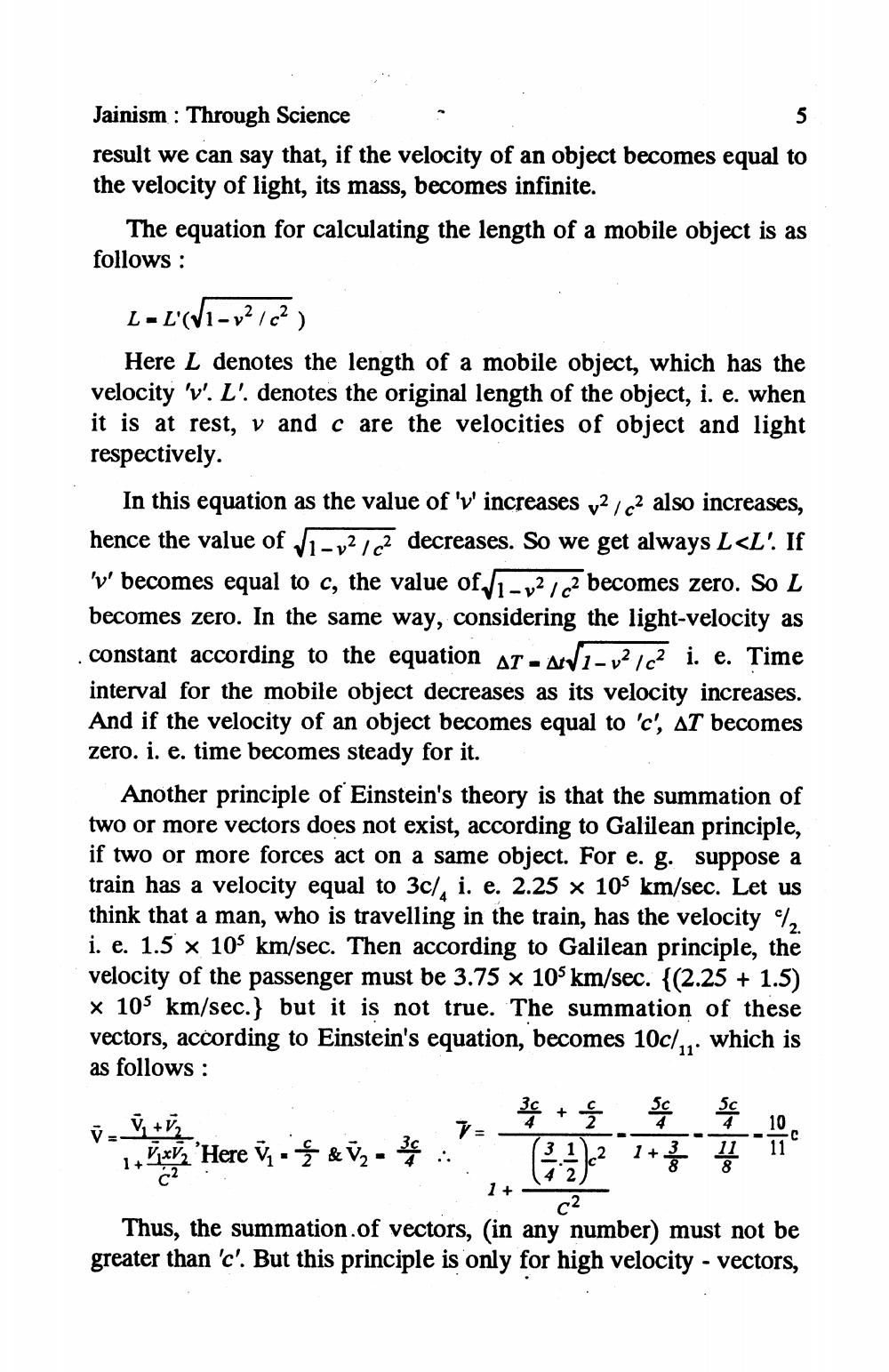________________
Jainism : Through Science result we can say that, if the velocity of an object becomes equal to the velocity of light, its mass, becomes infinite.
The equation for calculating the length of a mobile object is as follows:
L-L'(V1-12 162)
Here L denotes the length of a mobile object, which has the velocity 'v'. L'. denotes the original length of the object, i. e. when it is at rest, v and c are the velocities of object and light respectively.
In this equation as the value of 'V' increases v2 / 62 also increases, hence the value of VI-v2/c2 decreases. So we get always L<L'. If 'V' becomes equal to c, the value of Ji-v2/c2 becomes zero. So L becomes zero. In the same way, considering the light-velocity as constant according to the equation at -ari-v2/c? i. e. Time interval for the mobile object decreases as its velocity increases. And if the velocity of an object becomes equal to 'c', AT becomes zero. i. e. time becomes steady for it.
Another principle of Einstein's theory is that the summation of two or more vectors does not exist, according to Galilean principle, if two or more forces act on a same object. For e. g. suppose a train has a velocity equal to 3c/, i. e. 2.25 x 105 km/sec. Let us think that a man, who is travelling in the train, has the velocity % i. e. 1.5 × 10km/sec. Then according to Galilean principle, the velocity of the passenger must be 3.75 x 105 km/sec. {(2.25 + 1.5) x 105 km/sec.} but it is not true. The summation of these vectors, according to Einstein's equation, becomes 10c/,,. which is as follows:
1. Vix7, 'Here V - Ź & V2 -
1+ }
11
c2
Thus, the summation of vectors, (in any number) must not be greater than 'c'. But this principle is only for high velocity - vectors,




